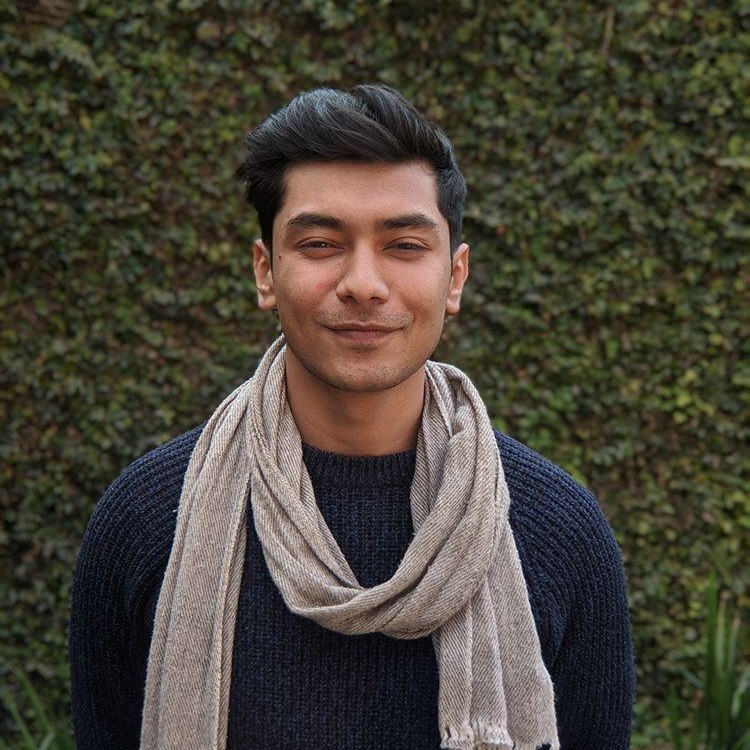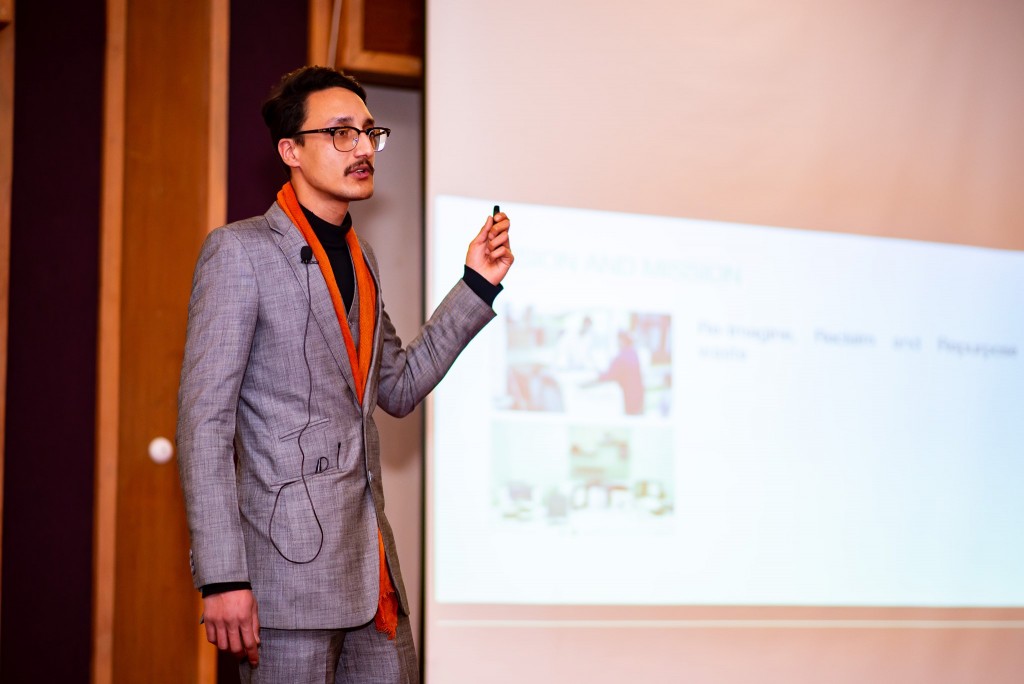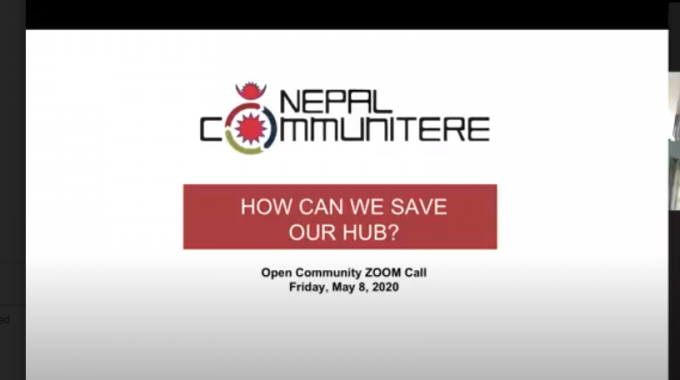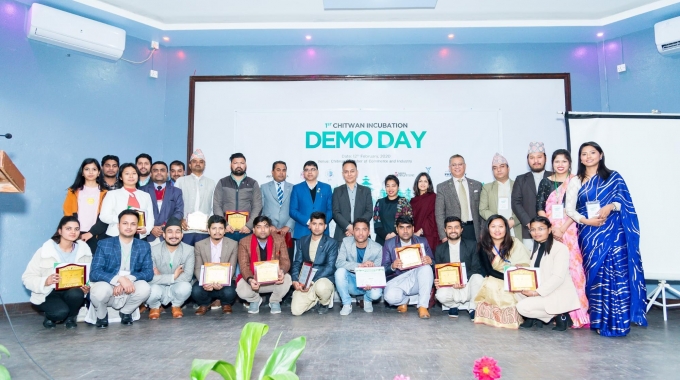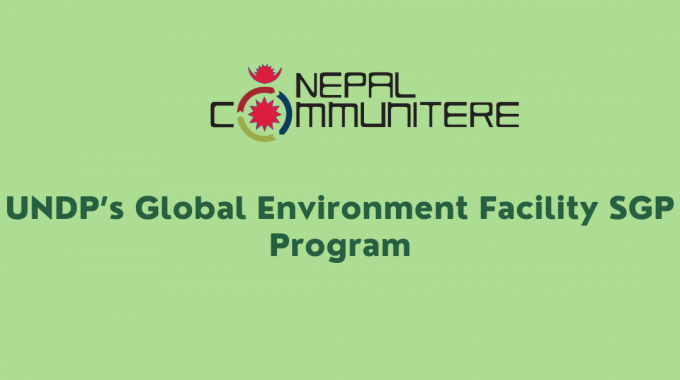
Launch of UNDP’s Global Environment Facility Small Grants Program (GEF-SGP): Upscaling Nepal’s Green Enterprises
By: Padmakshi Rana and Aarati Joshi
In our mission ‘to support entrepreneurs to build successful businesses that create viable solutions, generate revenue and create jobs for a better Nepal’, we are incredibly excited to partner with the GEF-SGP team, and assist two of our I-Cube Business Business Incubation Program, Year 2 alumni – Antidote Nepal and Ecoorb Ventures in upscaling their businesses.
GEF-SGP “works with local communities in developing countries, including Nepal, to achieve global environmental benefits by addressing their local needs. The programme provides grants to civil society organisations or community-based organisations for initiatives geared at conservation of biodiversity, mitigation of climate change, reduction of land degradation, protection of international waters and elimination of hazardous chemicals.”
Our ethos is to operate from a place of curiosity versus assumptions and expectations. GEF’s focal areas – climate change and capacity development, align with our objective to support enterprises that focus on integrating social and environmental initiatives in their everyday operations to influence change in consumer behavior and promote conscious consumption while creating green jobs focusing on gender equality and social inclusion. We work with start-ups like Antidote Nepal and Ecoorb Ventures that have sustainability at the core of their operations with Antidote Nepal being based in Kathmandu and expanding their services and Ecoorb Ventures’s paper factory and workers based in Sauraha, Chitwan.
We caught up with the Founders of Antidote Nepal and Ecoorb Ventures to hear their views and the way forward.
Manish Jung Thapa, Founder, Antidote Nepal
How do you feel about receiving the grant?
Really Excited! The timing of the grant could not have been any better. Post-COVID, we had to pivot our entire business model, essentially starting from square one. We are currently at the stage of product-market fit, trying to learn key market insights for our new model. This grant will help us acquire key customer segments, strengthen our infrastructure and increase sales.
What will you be doing with the grant and how do you think this will change the way you are working, especially in light of the pandemic?
This grant will fundamentally help us to bolster our capacity to pick, process, and dispatch items; help us test out the market at scale; reach new pockets of customer segments; and increase our sales, which directly help us save 65,000kgs of carbon emissions.
As we were testing a resilient/sustainable business model (Antidote GO) that has the ability to weather through unpredictable times like the current pandemic, we found that it is logistically demanding unlike our previous business model. In order to cope up with the operational and logistical requirements, we need to invest in human resources and infrastructure (both digital and physical). As such, a portion of the grant will be leveraged to fulfill this objective.
At the moment, we are also testing key customer segments. We previously launched our product with urban women (Kathmandu, Bhaktapur, Lalitpur, Pokhara, and Chitwan) between the age of 18-24 in one category (apparel and fashion). This grant will help us identify other key pockets of customer segments and categories to upscale our business through marketing campaigns and advertisements, whilst promoting conscious consumption.
Our entire business model revolves around enabling individuals to monetize their pre-loved assets (apparel, clothes, books, bags, shoes, and home decor items). Every time we enable a buy/sell deal in our platform, we offset 15kgs of carbon emission. When we enable a second-hand sale, it does not only help individuals earn a decent passive income, but also increases the effective life of the items, reduces the items that are sent off to landfill, and lastly, reduces the demand for brand new items. We have a mammoth goal of offsetting 65,000kgs of carbon emissions by the end of 2022.
Sunny Rajopadhyaya, Founder, Ecoorb Ventures
How do you feel about receiving the grant?
We are enormously pleased to receive the grant. We now believe we can work towards executing our long term goals of installing a biogas plant and banana fibre extracting machine. We will be able to focus on achieving our company’s core value to make paper production cleaner and greener.
What will you be doing with the grant and how do you think this will change the way you are working, especially in light of the pandemic?
We will be able to install a biogas plant and the banana fibre extraction machine that we have been planning for sometime now. The need to have a biogas plant is to offset our current carbon emissions in the manufacturing process – burning wood at the moment. The wood stores thousands of years of carbon and burning them releases twice as much carbon in their trunks. When we avoid burning 10,000 kgs of wood fuel, we directly offset around 1800kgs of carbon. With this in mind, using the biodigester to produce biogas, we can offset approximately 88,870 kgs of carbon.
In the light of the pandemic, we are happy that some of the grant amount can be used to cover operational costs. This changes the way we work because we can assure our customers that elephant dung paper is carbon neutral.

